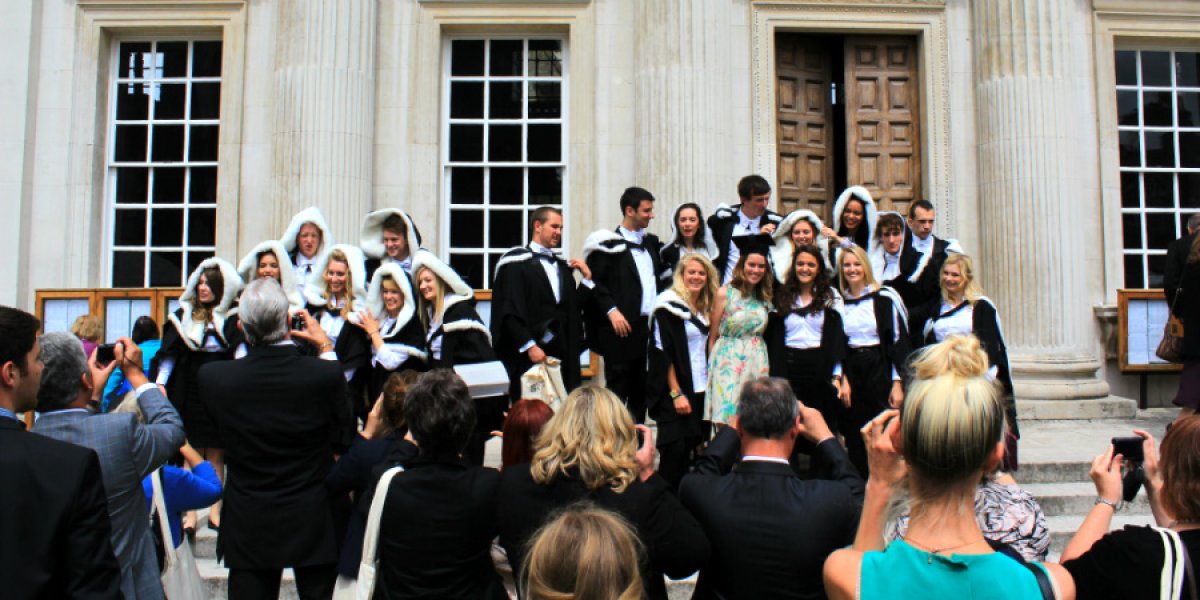After graduation you'll need to refer to your degree now and then. Find out how to get a copy of your academic transcript, a new degree certificate, participate in the Graduate Outcomes Survey or how to access CamSIS Extended Self Service below.
On this page:
Degree certificates and transcripts
Unofficial transcripts (CamSIS Extended Self-Service)
Degree verification
Graduate Outcomes Survey
Cambridge MA
Using the university brand
Degree certificates and official transcripts
The Student Registry produces paper copies of degree certificates and transcripts for full-time Cambridge degrees.
Those graduating in person will receive a paper copy of their certificate at the ceremony. Those graduating in absence will be sent a paper copy of their certificate by post, usually within about 10 working days of the ceremony, but please expect delays at this current time, due to COVID-19.
You will receive an email from the Student Registry within about 10 working days of the ceremony advising you how to access your online certificate.
Paper copies of transcripts are normally sent within 10 working days of graduation, but please expect delays, due to COVID-19. You can order electronic copies for sharing digitally with anyone of your choice. Please see the Student Registry's degree certificates and transcripts page for further information.
If you matriculated in 1980 or later, online copies of your official transcript can be ordered through a secure electronic document system called Digitary CORE. Visit the Student Registry's transcripts page for further information.
Unofficial transcripts (CamSIS Extended Self-Service)
Find out about accessing your unofficial transcript through CamSIS Extended Self-Service on the Student Registry's webpage about transcripts.
Degree verification
All verifications of full time Cambridge degrees are dealt with via Digitary Core, allowing you to decide who you share your personal data with. Please see the degree verification page on the Student Registry’s website for further information.
Graduate Outcomes Survey
You'll be contacted about 15 months after you finish studying about Graduate Outcomes, a national survey about where your degree has taken you. From summer 2017, all graduates who complete a course will be asked to take part in the survey, the results of which can help current and future students consider potential careers after their course.
It is administrated by the Higher Education Statistics Agency (HESA), which was responsible for the Destination of Leavers from Higher Education (DLHE) survey you may have heard about in the past.
To ensure that you're involved, be sure to keep your contact details up-to-date with us.
Find out more on HESA's website.
Cambridge MA
If you studied for a BA here you may proceed to the Cambridge MA, which is not a postgraduate qualification like at other UK universities. Graduations are administrated through your College, so in the first instance you should contact your College's development and alumni relations office to find out about arranging to have your MA Cantab conferred.
Some Colleges let alumni know when their matriculation year group becomes eligible to receive the MA Cantab, so be sure to keep your address updated with your College. This will be not less than six years from the end of your first term of residence, providing that at least two years have passed since you received your BA. If you are unsure, contact your College's development and alumni relations office.
Further information is available on the Cambridge MA page on the Student Registry's website.
Using the university brand
The University name and logo may not be used in a personal capacity by current members of the University or by Alumni. They may not give the impression they are representing the University by using the brand (‘CAMBRIDGE’) on personal websites, publications, letterhead or business cards. They may not use the brand in connection with their own commercial activities, including:
- setting up a business using the University’s global brand name CAMBRIDGE;
- consultation and private speaking;
- teaching engagements;
except under the auspices of CUTS. The University name only may be used when writing biographically, for example on CVs/resumes.
The cantab.ac.uk and cantab.net alumni emails addresses are intended for personal, non-commercial use only. Alumni must ensure that their use of these addresses does not imply they are representing or acting on behalf of the University.
